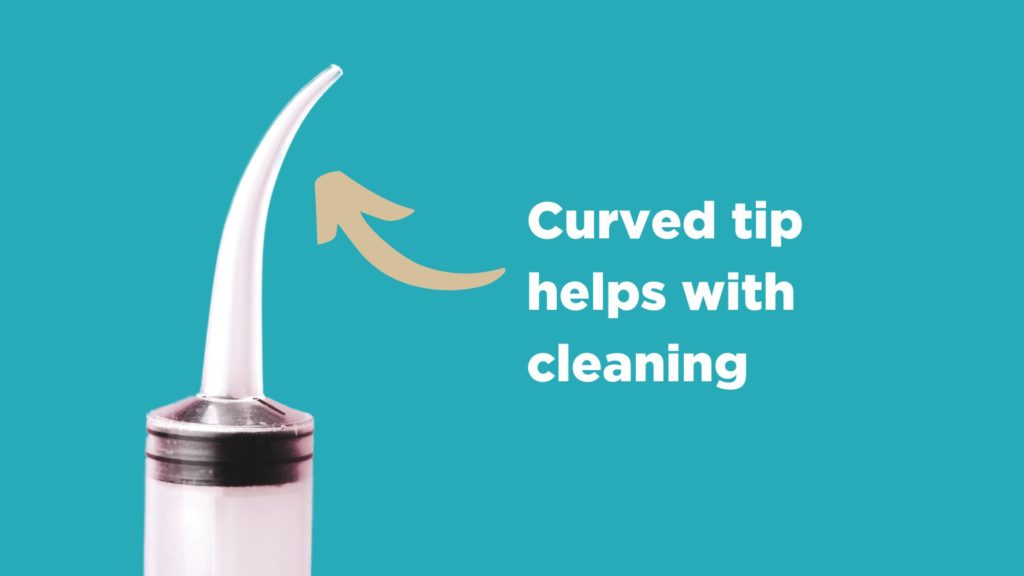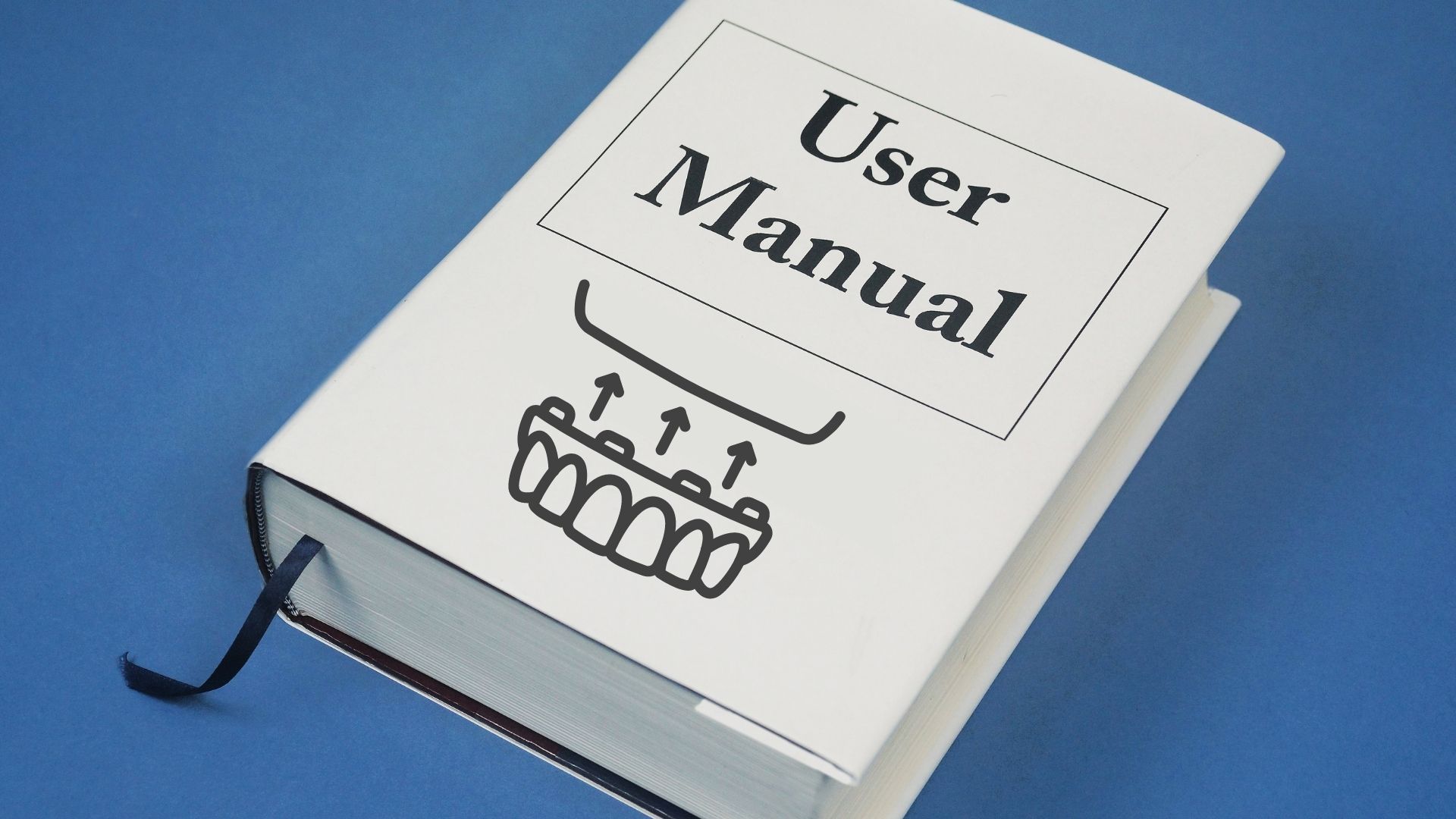New Teeth Now dental implants are designed to last a lifetime. With proper attention, a restored smile can improve your confidence in forging new relationships. And perhaps better still, your new functional teeth can enrich your relationship with your food.
This comprehensive dental implant care guide to caring for dental implants focuses on three main categories:
- Advice for the days and weeks following a dental implant procedure
- Tips for lifetime care to keep dental implants healthy and clean
- General guidance related to full mouth dental implant care
Who is this guide made for? For those caring for New Teeth Now dental implants. For those who have single dental implants or implant-supported bridges. For anyone considering replacing all of their upper or lower teeth with dental implants. If any of these scenarios sound like you, continue reading for some helpful advice.
After-Surgery Dental Implant Care
The days and weeks following a procedure are the most critical for proper dental implant care. During this time, your body is working hard to repair gum and bone tissue at the implant sites. This is also when the implant is undergoing osseointegration with your jaw. The implant needs time to fuse with the bone in order to provide strong support for your prosthesis.
Recovery time after the New Teeth Now procedure, when most people report feeling back to normal, is usually around 3-5 days.
Following are our recommendations for caring for your new implants and bridges during this sensitive period of recovery.
Do NOT pull stitches. Allow stitches to dissolve or fall out on their own. Unless your treatment coordinator has mentioned otherwise, any stitches you may have will fall out or dissolve on their own within 7-10 days. Never attempt to remove stitches on your own.
Use ice. If the swelling does occur, you can ice affected areas of the face. Use ice for 20 minutes on and 20 minutes off on the first 2 days after the procedure. By the third day, you can use ice and heat, alternating application for muscle stiffness.
Do NOT chew ice. When applying ice to reduce swelling, only apply it to the face. Do not place it into your mouth, and absolutely never chew on ice.
Avoid overcare. Something as simple as over-inspecting the surgical site can disrupt the healing process. When you pull at your cheeks and stretch your mouth open, you risk tearing at that surgical area that’s trying to heal.
Rinse with warm salt water. Wait for 24 hours after the procedure, then you can begin salt water rinses.
Practice gentle cleaning. You may brush your teeth on the day of the New Teeth Now procedure. Be very gentle. Use a soft-bristle toothbrush. This area needs time to heal. And again, be extra gentle, especially around the surgical site of the implant. Do not brush the surgical site at the direct gum line surrounding the implant. Do not do any swishing or spitting when cleaning your teeth. You may put water in your mouth to help rinse the toothpaste out. Don’t spit the water out. Open your mouth over the sink and let the water fall out. Then, wipe your mouth and be done.
Clean the gap with a Monoject™ syringe. As the gums heal, a gap is likely to form between the implant bridge and your gums. You will use a curved-tip irrigation syringe to gently wash food out of this gap. After 5-6 weeks, once gums have fully recovered, you will be able to switch to using a water flosser instead of the syringe, for a more thorough cleaning.

Do NOT over-clean. Over-cleaning is a common overcare issue that can be just as bad or worse than not cleaning enough. Constant picking at a problem area does not help the healing process along. Compulsive behaviors like these are more likely to exacerbate issues, ultimately turning something minor into a big problem.
Change gauze. Change your gauze frequently, but only as directed by your surgeon or treatment coordinator.
Avoid straws for the first 24 hours. Sucking, spitting, and swishing actions can irritate the healing process, especially during the first day. Blood clots need to develop in the extraction site during this time. Not following this guideline can lead to an uncomfortable dental condition called dry socket, which will prolong your healing time. A dry socket occurs when a blood clot does not form and the jawbone then becomes exposed to bacteria and air. This feels like an ache or a throbbing jaw pain. You would start to feel this pain within 5-6 days after the procedure. As soon as this pain occurs, call your implant provider. They will need to see you for dry socket treatment.
Avoid soft drinks. Soft drinks or harsh acidic beverages such as orange juice or coffee can irritate healing, and they may also lead to the development of dry sockets.
Only eat food you can cut with the side of a plastic fork. A soft food diet is recommended during the healing period of the New Teeth Now process. Even food that doesn’t appear too hard, such as lettuce, can be too rough to chew.
Take caution when consuming hot foods and beverages. For the first 24 hours, you will experience some numbness from the procedure. To avoid burns, be very careful when consuming things that tend to be hot, e.g., coffee, soups, and microwaved foods.
Don’t smoke. Smoking is terrible for dental implants. Active smokers increase their risk of infection following the procedure. Smoking restricts blood flow to bone and tissue at the implant site. Without this supply, healing is slowed and the body’s ability to protect against infection is dangerously compromised.
Chew gum. After a few days, if you begin to experience prolonged muscle stiffness where you are having difficulty opening your mouth as wide as you could before, start chewing gum periodically to help loosen up those jaw muscles.

Follow provided directions. You should not rely entirely on this guide for after-surgery care. Please remain in contact with your surgeon or treatment coordinator. If you have questions or you feel confused about what’s expected of you, never make assumptions.
To prepare before your procedure date, you may take the following actions:
- Prepare a summary of dos and don’ts
- Ask follow-up questions during appointments
- Keep your to-do list handy throughout the process
At New Teeth Now we have easy-to-follow preop and post-operation care instructions that you will review with your treatment coordinator before the scheduled procedure date.
Long-Term Dental Implant Care
New Teeth Now provides patients with prosthetic teeth that are designed to last a lifetime. With routine maintenance and proper care, your new teeth can be the permanent oral health solution you’ve always wanted.
Some of the advice you followed for your after-surgical care also applies here. Let’s go over what’s different about long-term care. Fortunately, there are much fewer long-term care tips. As many of our patients have, we think you’ll find that caring for full mouth dental implants is simple and straightforward.
Invest in a good water flosser. These simple devices are miracle makers when it comes to getting rid of buildup from hard-to-reach nooks and crevices around your dental implants and bridges. For full mouth implants, there is a slight space between the bridge and the gums that can collect artifacts while eating. A water flosser can gently massage away this buildup with a massaging jet of water.
Quit smoking, once and for all. We said it above, but it’s worth repeating. Smoking is terrible for your oral health. Smokers are at a much higher risk of infection. As we know, they’re also at a higher risk of oral health complications including tooth loss and, similarly, implant failure. With no other behavioral changes, one of the best ways to improve the health and longevity of your implants is by kicking that smoking habit, once and for all.
Do NOT skip your cleanings. Even with prosthetic teeth, you will need routine cleanings. Oral hygiene remains a priority for dental implants. If you are a New Teeth Now patient, a professional dental hygienist will remove your teeth for cleanings and review your oral health situation with you. This is the only time that your teeth will be removed, as they are otherwise fixed to the implants.
Wear your mouthguard as directed. If you’ve been advised to wear a mouthguard at night to address wear and tear from excessive teeth grinding and clenching, please do so.
Do NOT chew ice. Once everything has healed, it’s still unacceptable to chew ice, even with teeth made of zirconia.
Come see us if you’re having issues. Don’t ignore something if it feels wrong. We can take a look, even if it’s just for your peace of mind. Also, please do not attempt to correct an issue with a dental implant on your own. Operating on yourself from home is incredibly unsanitary and dangerous. Googling a DIY solution is asking for trouble and additional complications and expenses are basically guaranteed.
How to Care for Zygomatic Implants
Caring for zygomatic implants is no different than caring for any other implant placed by your oral surgeon during the New Teeth Now procedure.
Dental Implant Success
While the recommendations we’ve discussed in this guide will highly increase the likelihood of dental implant success and healing (especially New Teeth Now implants), we cannot guarantee the success of all dental implants. The skill of your oral surgeon plays a major role in the success of any dental implant procedure. Complications are most likely to occur within the first few weeks following any dental implant procedure.
Unrelated to Guided Dental Implant Systems
This care guide is not to be confused with “guided” dental implant systems, which are not relied on by New Teeth Now’s oral surgeons. Less experienced surgeons resort to the use of a guided system as a one-size-fits-all solution.
We understand that a person’s oral health is highly unique to their physiology, genetics and medical history. For this reason, the only guides used during the New Teeth Now procedure are based on the past experience and expertise of our oral and maxillofacial surgeons.
Seeking the guidance of New Teeth Now’s highly skilled oral surgeons, patients from all fifty states are coming to Florida to restore their smiles. If you have questions about the New Teeth Now process, please give us a call. We are happy to help you figure things out.








